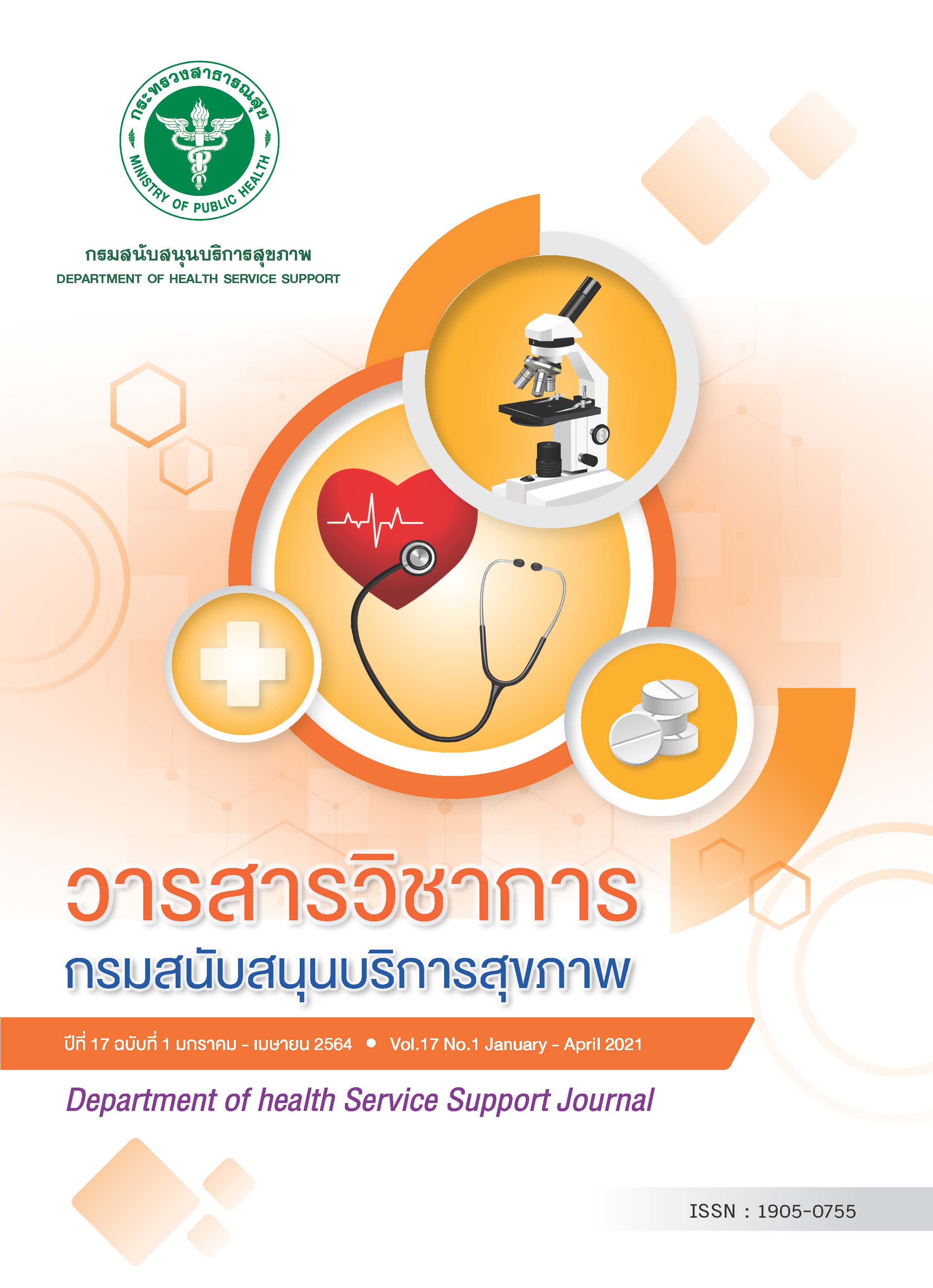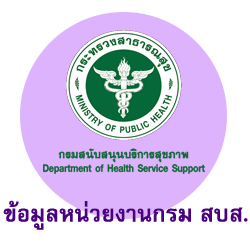THE EFFECTS OF THE EMPOWERMENT PROGRAM ON THE QUALITY OF LIFE WITH SCHIZOPHRENIC PATIENTS, EMPLOYMENT TRIAL PROJECT AT SRITHANYA HOSPITAL
Keywords:
empowerment, quality of life, schizophrenic patients, employment trial projectAbstract
This research was a quasi-experimental study aimed at comparing the effect of empowerment program on quality of life. The basic work skills, social adaptation skills and power source of schizophrenic patients, one group employment trial project. Measured before and after the end of the program for 6 months, the experimental group was schizophrenic patients who participated in the specific Srithanya Hospital employment trial program. (Between October - November 2019) of 12 people.The tools used in the research were 1.The empowerment program with schizophrenic patients, employment trial project which the researcher developed through the revision of 5 qualified persons, have experience in psychiatric rehabilitation.The content validity (IOC) between 0.60-1.00. 2.Personal Information Questionnaire. 3.World Health Organization’s Quality of Life Indicators, Thai version (WHOQOL-BREF-THAI) 4.The basic work skills and social adaptation skills evaluation form developed by Dr. Sodsai Khumsabanant and others Its accuracy was 0.81 5.The power source evaluation form, developed by Suthisa Deepetch, had accuracy of 0.90. Statistical data were analyzed by paired sample t-test.
The results of the research showed that 1) The mean scores of overall quality of life and physical domain, psychological domain and social relationships. After receiving the program higher than before.Statistically significant at the level of 0.05.There was no statistically significant difference in the environment after receiving the program than before. 2) The mean score of both basic work skills and social adaptation skills as a whole and aspects and the mean scores of power sources of schizophrenic patients. After receiving the program higher than before .Statistically significant at a level of 0.05
Therefore, the program developed from this research can improve the quality of life. The basic work skills, social adaptation skills and the power source of schizophrenic patients as well. And this program can be used as a model for the development of the schizophrenic employment program of psychiatric social workers. Focus on developing personnel to have the knowledge, the positive attitude and theempowerment towards patients and be able to implement the process.
References
Bejerholm, U., & Björkman, T. (2011). Empowerment in supported employment research and practice: is it relevant?. The International journal of social psychiatry. 57(6): 588–595
Bond, G. R., Dincin, J., Setze, P. J., & Witheridge, T. F. (1984). The effectiveness of psychiatric rehabilitation: A summary of research at Thresholds. Journal of Psychosocial Rehabilitation. 7(4): 6-22
Bouwmans, C., de Sonneville, C., Mulder, C.L., & Hakkaart-van Roijen, L. (2015). Employment and the associated impact on quality of life in people diagnosed with schizophrenia. Journal of Psychosocial Neuropsychiatric disease and treatment. 11: 2125–2142
Charearnyuth, Nittaya., Sarakarn, Kotchapong., Pathipatpakdee, Hathairat. (2012). The Effect of Empowerment Program on power source, *self-esteem and self-care behavior for female schizophrenia patients. The Journal of Psychiatric Nursing and Mental Health. 26(3): 41-56. (in Thai)
Charlson,F.J. et al. (2018). Global Epidemiology and Burden of Schizophrenia: Findings From the Global Burden of Disease Study 2016. Journal of Schizophrenia bulletin. 44(6):1195–1203
Chou, K-R., et al. (2012). Psychosocial Rehabilitation Activities,Empowerment, and Quality of Community-Based Life for People With Schizophrenia. Retrieved February 22, 2019, from www.pubmed.ncbi.nlm.nih.gov/22835748/
Deepet, Suthisa. (2013 ). The effects of using empowerment program on self-stigma ofschizophrenic patients in community. (Master of Nursing Thesis, Mental Health and Psychiatric Nursing, Faculty Of Nursing Chulalongkorn University). (in Thai).
Department of Mental Health, Ministry of Public Health. (2019). Annual Report Department of Mental Health Fiscal Year 2019 (Report). Nonthaburi: Department of Mental Health. (in Thai).
Department of Mental Health. (2001). Participationary Training Manual. Nonthaburi : Mental Health Development Bureau. (in Thai).
Dziwota, E., Stepulak, M.Z.,Włoszczak-Szubzda, A., & Olajossy, M. (2018). Social functioning and the quality of life of patients diagnosed with schizophrenia. Journal of Annals of agricultural and environmental medicine: AAEM. 25(1): 50–55
Fujino, H., et al. (2015). Predicting employment status and subjective quality of life in patients with schizophrenia. Journal of Schizophrenia research Cognition. 3: 20–25.
Hannah Ritchie and Max Roser. (2018). “Mental Health”. Published online at Our World In Data.org. Retrieved February 1, 2019, from www. ourworldindata.org/mental-health
Harnois, G., Gabriel, P. (2000). Mental health and work: Impact, issues and good practices. Geneva: World Health Organization and International Labour Organisation
Rutman, I. D. (1994). How psychiatric disability expresses itself as a barrier toemployment. Journal of Psychosocial Rehabilitation. 17(3): 15-35
Khumsabanant, Sodsai et al. (2014). Prevocational and Social Skill Assessment. Nonthaburi: Socialwork section, Rajanukul Institute, Department of Mental Health. (in Thai).
Kim, Yi & Park, Hyun. (2010). The Effects of Insight and Empowerment on Function and Quality of Life for Patients with Schizophrenia. Journal of Korean Academy of Psychiatric and Mental Health Nursing (2010). 19(1): 11-21.
Hyun, M. S., Kim, H., & Nam, K. A. (2019). Effects of an empowerment program for community-dwelling people with mental illness in South Korea. Journal of Perspectives in psychiatric care.55(1): 15–22.
Jamjuree, Daranee and Unipan, Jintana. (2002). A study of the power to deal with illness among chronic disease patients in Thai society context (Report of Research). Bangkok: Agricultural Cooperative Community of Thailand. (in Thai).
Lotrakul, Manote and Sukanich Pramote (2012) Psychiatry Ramathibodi. 3rd edition. Bangkok: Department of Psychiatry. Bangkok. Department of Psychiatry. Faculty of Medicine Ramathibodi Hospital Mahidol University. (in Thai).
Maslow AH. (1943). A theory of human motivation. Journal of American Psychological Association.50(4): 370–396.
Miller, J. F. (1992). Coping with Chronic illness: Overcoming Powerlessness. 2nd ed. Philadelphia:F. A. Davis.
Shepherd, G. (1989). The value of work in the 1980s. Journal of Psychiatric Bulletin. 13(5): 231-233.
Srithanya Hospital, Department of Mental Health, Ministry of Public Health. (2018). Social Work Section (Report of summary). Nonthaburi: Srithanya Hospital Department of Mental Health. (in Thai).
Stapornteera, Pawinee and Sawangchareon Kritaya. (2018). Empowerment for male schizophrenia with low self-esteem. The journal of Boromarajachonanee College of Nursing, Nakhornratchasima. 24(2): 145-159. (in Thai).
Suwannaboon, waliaporn., Puapan, Saijai., Thanee, Sanguan., Dallas,Chaisena and Jinjutha. (2015). The effects of Interpersonal group therapy on quality of life among schizophrenic patients. The Journal of Faculty of Nursing Burapha
University. 23(1): 68-79. (in Thai).
World Health Organization. (2019) Schizophrenia. Retrieved June 1, 2019, From www.who.int/ news-room/fact-sheets/detail/schizophrenia”
Woo, J.H., Jang, J.H., & Cho, J.H. (2018). Effects of an Empowerment Program for Patients with Schizophrenia. Journal of Korean Academy of Psychiatric and Mental Health Nursing. 27(2): 123-134.
Downloads
Published
How to Cite
Issue
Section
License

This work is licensed under a Creative Commons Attribution-NonCommercial-NoDerivatives 4.0 International License.



